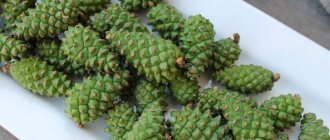Psyllium is a herbal remedy that is the husk of plantain seeds. Typically, the production of the substance involves grinding the shells to flour. Psyllium husk powder can be an independent dietary supplement or the basis of a medicine. The properties of the substance allow it to be widely used in gastroenterological and therapeutic practice: psyllium-based products can be prescribed by allergists-immunologists and dermatologists. In the article we will talk in more detail about the action of the psyllium seed shell and its therapeutic effect, as well as methods and forms of use.
Psyllium seed husk is a natural plant fiber. Regarding the question of how to collect psyllium, keep in mind that flea plantain is used as a raw material in production - it is grown specially. Therefore, you will not be able to obtain the medicine yourself.
The seeds of the plant are record holders for the content of soluble fiber - up to 70% of the total volume. Even oat bran cannot compare with psyllium in this parameter.
In the composition of psyllium, three types of components can be distinguished: good, weakly fermentable and non-fermentable. It is the last two components that are responsible for the ability of the substance to be converted into a gel, this provides sorbing properties and helps normalize stool. And therefore, psyllium is mainly used in gastroenterological practice to combat intestinal dysfunction.
Properties of psyllium
The high content of dietary fiber provides the therapeutic properties of psyllium.
The gel-like mass into which the substance is converted in the gastrointestinal tract has the following actions: +
- reducing blood glucose and cholesterol levels;
- binding and removal of toxins (including those formed as a result of the activity of pathogenic bacteria), poisons, allergens;
- soft enveloping of the intestinal mucosa, which promotes faster healing;
- creating a nutrient environment for beneficial intestinal bacteria, helping in the fight against dysbiosis;
- mild stimulation of intestinal motility, normalization of stool;
- slowdown in the absorption of fats and carbohydrates;
- prevention of constipation and related complications;
- minimizing the risk of gallstones, etc.
Dietary fiber absorbs allergens, breakdown products and other harmful substances. Fiber is involved in the formation of the food bolus and provides a long-lasting feeling of fullness. In addition, fiber reduces the load on the liver and also reduces the risk of developing heart and vascular diseases, since it partially binds cholesterol and fat. Psyllium helps the body cope with intoxication, gently eliminates hangover syndrome and has a strengthening effect on diarrhea. Experts recommend that you include in your diet components that are resistant to digestion.
The effects of psyllium have been examined in many scientific studies. Thus, researcher Pyanykh O. in his work indicates that “dietary fiber has a hypoglycemic and hypocholesterolemic effect” (Pyanykh O. P., 2021, p. 88).
Psyllium is a natural soluble fiber. It acts as gently as possible, without irritating the intestinal mucosa, unlike bran. Psyllium quickly absorbs water, turning into a slimy gel. Together with the liquid, it binds and removes toxins. Thus, the component helps thicken stool, reduce the frequency of bowel movements, and prevent dehydration. In this case, taking psyllium does not require drinking large amounts of water, so the drug will act faster.
Composition and nutritional value
The uniqueness of psyllium lies in its composition. It consists almost entirely (75-80%) of low-calorie soluble fiber . For comparison, in the same oat bran it is only 5 percent.
The calorie content of psyllium husk is 42 kcal per 100 grams. BJU ratio: 2.9-0.1-7.3 . What is noteworthy is that digestible carbohydrates are almost completely absent. Oat bran contains much more calories (approximately 320 per 100 g). At the same time, 60% are carbohydrate components.
Sofia Sokolova
Your guide to iHerb and vitamins
Ask a Question
In addition, psyllium contains substances beneficial to the human body, such as oleanolic acid, fatty oils, and nitrogenous components . It is they (together with soluble fiber) that help normalize the functioning of the gastrointestinal tract, reduce cholesterol levels and symptoms of diabetes, and stabilize body weight.
Psyllium is also used in cooking. Among fans of healthy nutrition, various keto diets and the preparation of carbohydrate-free baked goods from the shell of psyllium seeds are very common.
Indications for use
Psyllium-based products can be prescribed by a doctor to correct many diseases and symptoms:
- diarrhea of infectious, dysbiotic origin, stool disorders associated with uncontrolled use of laxatives, as well as traveler's diarrhea;
- post-infectious digestive disorders, including flatulence, unstable stools;
- irritable bowel syndrome;
- allergic diseases, dermatoses, allergic dermatoses, etc.;
- intestinal dysbiosis associated with the use of antibiotics and other factors;
- intoxication of various origins, including those associated with infectious diseases, poisoning, etc.
As part of complex therapy, psyllium is used for hypercholesterolemia, elevated blood glucose levels, diverticulosis, etc. It is important to remember that the choice of the form of the drug and determining the advisability of its use must be agreed with a doctor.
Get rid of intestinal problems
The natural British drug is not addictive and works immediately
Find Phytomucil with benefits
Recipes
In cooking, it is used as a thickener or a separate component. For example, a couple of interesting recipes.
Dietary crumpets according to Dukan
For preparation:
- 200 ml skim milk;
- 10 g psyllium;
- 1.5 tsp. baking powder;
- 4 tbsp. l. gluten;
- sugar substitute and salt to taste.
Pour milk over the ground plantain husk and let stand for 20-25 minutes. After swelling, add the remaining ingredients and knead the mass thoroughly. Place the mixture in suitable molds and place in the oven (180 degrees) for 40 minutes . If desired, you can add cinnamon, ginger, basil, turmeric, etc. to the dough.
Zucchini with minced meat
What you will need:
- 2 small zucchini;
- 300-350 g minced meat;
- onions – 1 pc.;
- sweet pepper – 1 pc.;
- flour (preferably sesame) – 1 tbsp. l.;
- psyllium – 1.2 tsp;
- cheese – 100-150 g;
- vegetable oil – 1 tbsp. l.;
- salt and spices as desired.
Wash the vegetables, remove the core from the zucchini, after dividing them in half lengthwise. Cut the extracted zucchini pulp into cubes along with peppers and onions, then lightly fry in a small amount of vegetable oil, add salt and spices.
Add psyllium, flour and a third of a glass of water to the fried mixture. Mix thoroughly. Now put the filling into the prepared zucchini boats and bake in an oven preheated to 200 degrees for 30-40 minutes . A couple of minutes before it is fully cooked, sprinkle the browned dish with grated cheese.
Results of taking psyllium
The positive properties of psyllium allow it to be widely used in the treatment, correction and prevention of various disorders. We looked at the most common uses of this substance.
Treatment of diarrhea
Psyllium is a component of antidiarrheal drugs. Plant sorbent absorbs water and toxins, pathogenic bacteria and their metabolic products, as well as viruses. This allows the use of products based on it in the treatment of diarrhea of infectious, toxic origin, traveler's diarrhea, as well as antibiotic-associated diarrhea. With the help of psyllium, it is possible not only to cope with the cause of the disorder, but also to relieve unpleasant symptoms - normalize the consistency and frequency of stools, eliminate flatulence and abdominal pain.
Correction of post-infectious disorders
Poisoning or viral intestinal infections can damage the intestines for a long time. Even after acute symptoms have subsided, increased gas formation, unstable stools, alternating diarrhea and constipation, and pain in different parts of the abdomen may be observed. In this case, psyllium can act as part of corrective therapy and speed up full recovery.
Treatment of allergic dermatoses
Plant fibers absorb allergens and help improve the appearance of the skin, reducing the number and severity of rashes. Therefore, a psyllium-based drug can be part of a complex treatment for dermatological and allergic diseases. A dermatologist will tell you how to drink psyllium correctly. The substance will complement the action of external skin products and other components of therapy.
Relief of intoxication
Various intoxications, including those associated with work habits and drinking alcoholic beverages, can be relieved with the help of sorbents. Severe cases require hospitalization, but if this is not indicated, the doctor will prescribe medications to speed up the elimination of toxins. Among them may be preparations based on plant sorbents.
Normalization of stool when taking antidiarrheals
Exceeding the dosage, choosing the wrong drug, or uncontrolled use of laxatives can all cause diarrhea. In addition, some medications also have a laxative effect, which causes a lot of inconvenience. Psyllium is recommended for normalizing stool as one of the means of symptomatic therapy.
Improving well-being in acute infectious diseases
Severe infections and respiratory diseases are accompanied by general intoxication of the body. Psyllium is often used to improve well-being and speed up recovery, since it is important to help the body cope with the elimination of toxins and waste products of infectious agents.
FAQ
What is psyllium, or psyllium husk?
From the husk of psyllium seeds, plant fiber is obtained in powder form by grinding. It is a soluble fiber that has a number of health benefits.
Can psyllium help with weight loss?
Research has shown that the high fiber content of psyllium husk slows the rate of food digestion, thereby increasing the feeling of fullness between meals. Thanks to this property, it can help those who want to lose weight.
How to take psyllium husk?
The greatest benefit is observed with a daily intake of 3.5-5 g of psyllium. To avoid bloating and discomfort, it is better to start with a smaller amount and gradually increase the amount of fiber to the recommended amount.
Conclusion
Psyllium husk is an excellent source of soluble fiber and can have positive health effects and help you lose weight. So, whatever your goal, psyllium husk can offer you an inexpensive and effective way to maintain an active lifestyle and a healthy diet.
Articles on our website are presented for educational and informational purposes only. We do not recommend using article materials as medical advice. If you decide to take dietary supplements or make fundamental changes to your diet, first consult with a specialist.
Translation: Farida Seidova
How to take: release forms, doses and duration of use
To determine how to drink psyllium correctly, you need to choose the form of the product. The main form of release is a powder that looks like flour. In this case, psyllium can be taken by diluting it in juice or water. The use of powder packaged in sachets ensures maximum ease of use. Firstly, in this case it is easier to calculate the dosage of psyllium. Secondly, the bag is easier to take with you to work or on a trip. Some manufacturers also produce capsules.
It is important to drink enough fluids because the substance has the ability to absorb water. The recommended amount of water for adults is up to 1.5-2 liters per day.
Psyllium can be used in conjunction with rehydration solutions, drugs for restoring intestinal microbiocenosis, antibiotics and other means. However, it is important to maintain a certain time interval between medications to ensure their high effectiveness.
You need to use psyllium-based supplements in a course. Features of application depend on what tasks the drug faces. Manufacturers indicate that using 1-3 tsp is sufficient. supplements 2-3 times a day, and capsules are usually taken one or two twice a day.
On average, it is enough to take seven grams three times a day on the first day, and then twice a day. The duration of the course can be up to 1−2 months. According to indications, you can repeat the course of treatment after a break.
Answering the question about how to take psyllium, let’s outline the main thing: you shouldn’t wait for the product to swell after diluting with water. It must be drunk immediately after dilution.
There are other rules of application:
- Please read the attached instructions carefully. The dosage is determined by the concentration of fibers in the powder.
- Start using gradually unless strictly indicated. Observe the body's reaction, skin condition and intestinal functions.
- Do not exceed the recommended doses, and also ensure that there is an interval between taking psyllium and other medications or food. This will help avoid the removal of beneficial substances along with toxins.
If you have any doubts or questions, it is important to seek additional medical advice.
Analogs
Finding a replacement for psyllium is quite difficult. But if you still have problems purchasing the original product, try:
- crushed flaxseeds in a ratio of 1 to 1;
- ground onion seeds (again 1 to 1);
- xanthan gum, which will be required in smaller quantities (the concentration of 1 tablespoon of plantain seeds is equal to 1 teaspoon of gum).
Please note that substituting ingredients may change the consistency or taste of the dish.
Are there any contraindications?
The benefits of psyllium for the body are obvious, but it is important that there are no contraindications for use. Individual intolerance to this component is extremely rare, but there are limitations from the gastrointestinal tract:
- some acute inflammatory diseases of the digestive tract (for example, acute pancreatitis);
- gastrointestinal obstruction;
- malignant tumors of the digestive system;
- acute surgical pathologies;
- fecal blockage.
Therefore, in cases where there is reason to suspect serious conditions, it is not recommended to take any sorbents - it is important to immediately consult a doctor.
Side effects
In the vast majority of cases, psyllium does not cause adverse reactions. True, its individual intolerance cannot be ruled out. Due to the development of allergies, the following problems are possible:
- skin irritation;
- itching;
- rashes;
- swelling of the airways.
If such symptoms appear, you should immediately stop taking the supplement and seek help from a medical facility.
In rare cases, changes in the gastrointestinal tract are observed. Sometimes drugs provoke vomiting, nausea, excessive gas formation and indigestion. In this case, you also need to consult a specialist. At this point, the supplement is stopped.
Benefits of Psyllium
Psyllium is a natural sorbent and therefore has no strict restrictions. The sorbent is used in obstetric practice, in pregnant and lactating women. Its use is also permitted in children from three years of age, as well as in the elderly. The substance acts gently and does not injure the intestinal mucous membranes. High efficiency allows you to quickly cope with symptoms of diarrhea and other conditions.
basic information
| Security measures | LIKELY SAFE AND WELL TOlerated |
| Type of medicine | Grass |
| Main sign | Constipation |
| Potential Action | Mass action laxative |
| Chemical composition | Cellulose |
| Dosage | from 5 to 30 grams |
| The best aid | from 240 to 500 ml water or milk |
| Scientific name | Plantago Ovata |
| Family | Plantaginacea |
| Hindi name | Isabgol |
| English name | Psyllium |
| Other names | Ispaghula, shpogel seeds |
Phytochemistry (chemical composition)
Plantain (Isabgol) contains:
| Xylose | 59% |
| Arabinose | 22.3% |
| Uric acid | 6.1% |
| Galactose | 3.7% |
| Glucose | 3.5% |
| Ramnoza | 3% |
| Mannose | 1.6% |
| Ribose (rarely found) | 0.01% |
Psyllium (Isabgol) seeds
Psyllium seeds (Isabgol) contain a mucilaginous substance that constitutes about 30% of its total weight. Mucus is made up of soluble fibers called polysaccharides.
The seeds contain about 40% linoleic acid (LA), an important essential fatty acid. Isabgol seeds contain:
| Fiber Content | 19% |
| Squirrels | 18.8% |
| Triglycerides | 10 – 20% |
Psyllium (Isabgol) Hask
Isabgol husk (Psyllium) contains 75 to 78% fiber, 70% of which is soluble and 30% insoluble.
Botanical classification (plant taxonomy)
| Kingdom | Plants |
| Sub-kingdom | Viridiplanta |
| Infra-kingdom | Streptophyta (terrestrial plants) |
| Supersection | Embryophyte |
| Chapter | Tracheophyta (tracheophytes or vascular plants) |
| Subsection | Spermatophytina (Spermatophytes or seed plants) |
| Class | Magnoliopsida |
| Subclass | |
| Super order | Astairan |
| Order | Lamiales |
| Family | Plantaginacea (plantains) |
| Genus | Plantago (plantain or Indian wheat) |
| Kinds | Plantago Ovata (Indian desert wheat) |











